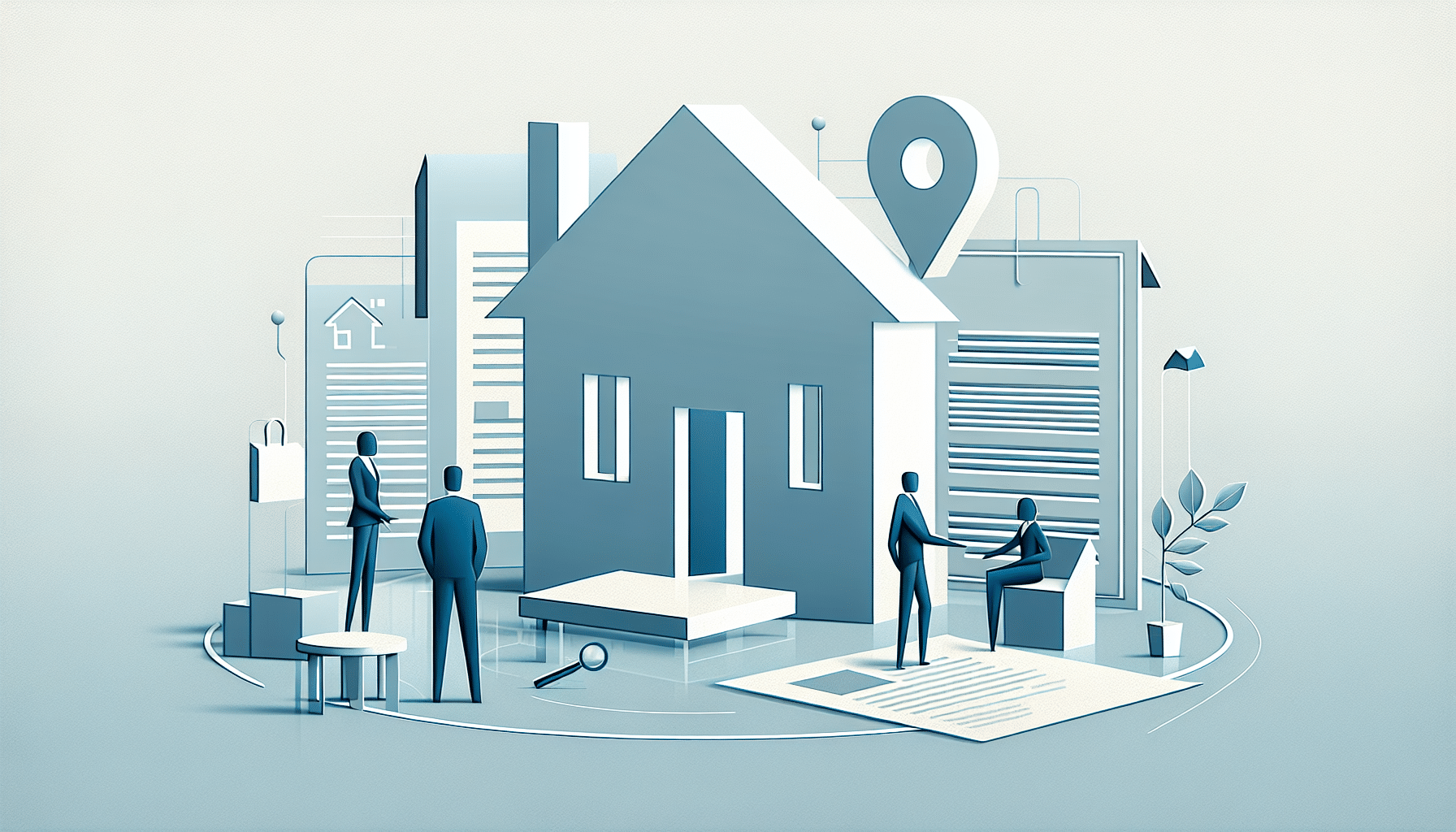Anúncios
Imagine you’ve finally decided it’s time to stop renting and move into your own place. But before you sprint to that open house, there’s a crucial step to help you stand out in the market: getting pre-approval for a home loan. Preapproval is all about showing lenders and sellers that you’re not only serious about buying but also financially ready. By the end of this guide, you’ll feel confident about the paperwork, the process, and the payoff. So let’s dive right in.
Understand what preapproval means
Preapproval is a lender’s conditional promise to give you a certain loan amount for a home, usually valid for 60 to 90 days. In practical terms, you submit detailed financial documents, your lender reviews them, and then you get a letter saying something like, “We’d be willing to offer you this much money.” This letter can be a game-changer when you’re house hunting because it tells sellers you’ve got your financing lined up.
Why timing matters
You might notice different lenders have varying time limits on preapproval, sometimes as short as 30 days or as long as 90. Because you often need to close a deal quickly once you find the right property, it’s smart to get preapproved close to when you plan to shop. If your letter expires before you’ve found a home, you might need to redo the process and resubmit documents.
Spot the difference: prequalification vs preapproval
It’s easy to confuse prequalification with preapproval. Both involve sharing finance details with a lender, but they aren’t the same. Here’s a quick comparison table to highlight key differences:
| Feature | Prequalification | Preapproval |
|---|---|---|
| Level of detail | Quick estimate, minimal paperwork | In-depth review, multiple financial documents required |
| Credit check | Often a soft inquiry or basic check | Formal credit check (hard inquiry) |
| Typical processing time | Can be done online in less than an hour | May take several business days or up to a couple weeks |
| Validity and credibility | Informal estimate of how much you might borrow | Formal conditional offer to lend a specific amount |
| Seller confidence | Lower, since it’s just an initial figure | Higher, since lender has verified assets and credit |
Prequalification is terrific when you’re just getting started, because it gives you a ballpark range for your homebuying budget. It’s also a good tool if you want to explore types of home loans and see what might best fit your income or lifestyle. Once you’re serious about making an offer though, you’ll want to have preapproval in hand so sellers know you mean business.
Gather your important documents
To get preapproved, you need to prove you can afford the mortgage payments. This means gathering several documents that show your income, assets, employment history, and debts. While the exact requirements vary by lender, here’s a basic list:
- Proof of identification (driver’s license, passport, Social Security card)
- Pay stubs for the last month or two
- Tax returns and W-2 forms for the past two years
- Bank statements for the last couple of months
- Statements for any investment or retirement accounts
- Documentation of monthly debts (car loans, student loans, credit cards)
- Rental history (if available) or contact info for landlords
- Gift letter, if down payment money is a gift
If you’re self-employed, expect to provide business tax returns, a year-to-date balance sheet, and a profit-and-loss statement. Lenders want to see consistent, predictable income so they can be confident you’ll keep up with mortgage payments.
A note on gift funds
Gift money from a loved one can help you cover a down payment, but lenders need to confirm it’s truly a gift, not a sneaky loan. That’s why the giver must sign a gift letter stating the funds never need repayment. Certain loan types also have rules on who can give you gift money, so check those requirements before finalizing anything.
Explore how lenders make their decision
Once you’ve handed over those financial documents, lenders dive into the details. They look at three big factors to decide if you qualify for a loan and at what interest rate:
-
Credit score and history
Lenders want to see how well you’ve handled debt. On-time payments, low credit card balances, and a track record of responsible borrowing all go a long way. An official preapproval typically involves a hard credit check, so it can show up on your credit report. If you shop around for multiple preapprovals within a short timespan, they should all count as a single inquiry. -
Debt-to-income ratio (DTI)
Your DTI is basically how much you owe each month (like credit cards, car loans, or student loans) compared to what you earn. Most lenders prefer a DTI under about 36% for a conventional loan. If you’re pushing a higher DTI, you might still get approved, but you may face higher interest rates or additional requirements. -
Employment and stability
Generally, lenders want a two-year employment history in a stable field. If you’ve changed jobs, you might need to show that you’ve stayed within a similar industry or have consistent earnings. It’s all about proving you’ll keep bringing in a steady paycheck.
Decide when to get preapproved
So, when is the right time to get preapproval for a home loan? Ideally, you want to match preapproval to your house-hunting window. Too early, and you might have to update your paperwork if the letter expires after 60–90 days. Too late, and you risk missing out on a great property because the seller doesn’t want to wait for you to secure financing.
Strategy tips
- Get preapproved right before serious shopping: If you’re still in “just looking” mode? Maybe hold off. But if you’re ready to submit offers, it can give you a competitive edge.
- Keep documents updated: Any delays in sending requested documents might extend the process or make a lender question your seriousness.
- Factor in renewal: If your preapproval expires, renewing typically isn’t a big deal, but you’ll have to re-verify your finances.
Embrace the benefits of preapproval
While it might feel like you’re jumping through hoops, preapproval comes with big perks:
- Negotiating power
Sellers are more likely to accept your offer because you’ve demonstrated you can afford their asking price. If you’re in a hot housing market, that can give you an advantage over buyers who haven’t completed this step. - Speedy closing
You’ve already done a chunk of the legwork, so the final mortgage approval can often happen faster. - Budget clarity
Preapproval shows you exactly how much a lender is willing to give you, so you can focus on homes in a certain price range. This is where a quick check with a home affordability calculator can also help confirm you’re looking at realistic targets. - Confidence in your offer
When you put in an offer with a preapproval letter, you’re showing sellers you can back it up financially.
Avoid common mistakes
Just because you’re preapproved doesn’t mean you’re in the clear until you close. Lenders can pull your credit again, or re-check your bank accounts, especially if there’s a long gap between preapproval and final approval. Here are some pitfalls:
- Making new credit moves
Avoid opening new credit cards, car loans, or racking up huge balances. A sudden dip in your credit score could jeopardize the loan. - Job changes
Switching careers might improve your life, but it can unsettle lenders if it happens right before closing. - Large purchases
Buying new furniture? Wait if you can. Big, last-minute expenses could shift your DTI and stall the entire mortgage. - Ignoring lender questions
If your lender asks for clarification or extra documents, provide them quickly to keep the ball rolling.
Compare multiple lenders
Even after getting preapproval with one lender, it’s smart to compare rates and terms. Checking out multiple offers within a short timeframe shouldn’t ding your credit significantly, because typically these hard inquiries merge as a single event on your report. You could save thousands over the life of your mortgage by getting a fractionally lower interest rate.
Where to find potential lenders
- Local banks or credit unions
- Online mortgage lenders
- Mortgage brokers who can shop around on your behalf
- Our curated guide on the best mortgage lenders
Each lender might have slightly different eligibility criteria, interest rates, and closing costs. So take the time to crunch numbers and pick the one that fits your budget best.
Factor in the down payment
You might have saved a chunk of cash for a down payment, but if you need extra assistance, you’re not alone. Programs exist to help qualifying buyers afford that initial cost. Feel free to explore down payment assistance programs if you’re looking to lighten the upfront financial load.
Why down payments matter
Your down payment size affects the type of loan you get, whether you’ll need private mortgage insurance (PMI), and by extension, your monthly payments. Higher down payments typically lead to lower overall costs, but that’s not a strict rule. You can choose to conserve cash for any number of reasons, like renovating your new place or keeping a rainy-day fund.
Use your preapproval effectively
Once you have a preapproval letter in hand, the most important thing is to use it wisely. You’ll want to:
- Stick to your budget
Preapproval might be a tad higher than the number you’re comfortable paying each month, so set a personal cap and avoid overextending yourself. - Act quickly on listings
In competitive markets, homes can go under contract within days or even hours. Having preapproval means you can immediately submit a strong offer. - Stay organized
Keep all your documents and contact details in one place. If the lender or the seller’s agent requests information, you’ll be ready to respond fast.
Plan your next steps
Now that you understand the ins and outs of pre-approval for a home loan, it’s time to turn this knowledge into action. Here’s a quick checklist:
- Assess your financial readiness
Take a look at your savings, DTI, and credit score. If needed, pay down debts or boost your savings to strengthen your application. - Get prequalified
If you haven’t already, try a quick prequalification to gauge how much you could borrow. It’s an informal yet insightful step if you’re still exploring neighborhoods or property types. - Collect your paperwork
Start gathering tax returns, pay stubs, bank statements, and more. Don’t wait until the last minute. - Schedule time with a lender
Pick a lender and provide all your documents. Ask about their specific timeline. Many can provide a preapproval letter in as little as a day if everything checks out, but it can take longer if your finances are complex. - Shop around
If you want a better rate, compare offers from multiple lenders. Remember, multiple inquiries in a short period are generally treated as one on your credit report. - Keep finances steady
From now until you close on your home, avoid big financial changes. That includes adding credit accounts or making lavish purchases. - Explore loan programs
If you’re still unsure, consider types of home loans to find a format that suits your goals, whether that’s a 30-year fixed, an adjustable rate, or a government-backed loan. - Prepare to make an offer
With preapproval in hand, you’re set to pounce on the perfect house. Good luck with your search.
Final takeaway
Preapproval might seem like just another item on your never-ending homebuying to-do list, but it’s actually a powerful tool. By clarifying your budget, improving your seller credibility, and helping you aim for the right price range, it can turn a daunting house hunt into a more confident, streamlined experience. Plus, if you’re ready to jump on a great listing, you won’t lose out simply because you’re sorting out your finances.
Buying a home can be a winding journey, full of details and deadlines. But when you’re adequately prepared and know exactly what you can afford, you’ll feel in control every step of the way. So gather your documents, secure that precious preapproval letter, and keep your eyes peeled for the house that’ll soon become your dream home. If you have lingering questions or need more advice, don’t hesitate to speak with a lender, real estate agent, or trusted financial advisor. With a little planning, you’ll be well on your way to unlocking your new front door. Happy house hunting!








